APHIS NBAF Scientist Training Program
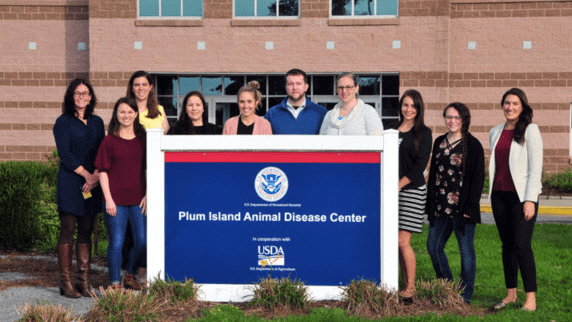
First student cohort at the program's kick-off event at Plum Island Animal Disease Center, Fall 2018
APHIS established this graduate training program to develop the next generation of scientists to support the Foreign Animal Disease Diagnostic Laboratory’s (FADDL) current and expanded mission objectives at the National Bio and Agro-Defense Facility (NBAF).
The Animal and Plant Health Inspection Service (APHIS) was established by the Secretary of Agriculture on April 2, 1972. The agency’s mission is to protect the health and value of American agriculture and natural resources. APHIS promotes the health of animal and plant resources to facilitate their movement in the global marketplace and to ensure abundant agricultural products and services for U.S. customers. This mission includes guarding against the introduction or re-emergence of animal ·and plant pests and diseases that could limit agricultural production and damage export markets. APHIS also monitor for and respond to potential acts of agricultural bioterrorism, invasive species, and diseases of wildlife and livestock, focusing on diagnostic methods and outbreak response preparedness and management.
FADDL is a national reference laboratory for APHIS Veterinary Services and the National Animal Health Laboratory Network and an international reference laboratory for the Food and Agriculture Organization of the United Nations and the World Organisation for Animal Health. FADDL is currently located at the Plum Island Animal Disease Center (PIADC) in New York, the National Bio and Agro-Defense Facility (NBAF) in Kansas, and with the Puerto Rico Department of Agriculture in Puerto Rico. PIADC is the only U.S. location approved for handling high-consequence foreign animal diseases (FADs), including foot-and-mouth disease and rinderpest viruses. The majority of the U.S. FAD diagnostic expertise for livestock diseases resides at PIADC-FADDL, within a small team of technicians, microbiologists, veterinarians, and veterinary scientists (D.V.M./Ph.D.).
FADDL’s work at Plum Island is moving to NBAF in Kansas. It is likely that many of FADDL’s subject matter experts (SMEs) will not relocate to NBAF. Loss of institutional expertise combined with the increased number of staff needed at NBAF creates a need for a plan to bridge the transition gap. Furthermore, the FADDL mission will expand at NBAF to include zoonotic and emerging diseases, with a new emphasis on biosafety level (BSL)-4 pathogens. SMEs knowledgeable in these agents and with expertise in working in BSL-4 laboratories will be critical to develop BSL-4 programs at NBAF.
APHIS developed the NBAF Scientist Training Program (NSTP) to minimize the anticipated SME gap during the transition process and identify highly qualified candidates to fill key roles in NBAF. Applicants for the NSTP must be enrolled in a graduate level (M.S., Ph.D., or D.V.M./Ph.D.) program (preferably second year or later), at a university and in a laboratory-based field of study. These may include microbiology, virology, molecular biology, diagnostics, and bioinformatics. APHIS will partner with universities and laboratories to ensure the fellows’ research projects address specific FADs and capability needs. Once accepted into the NSTP, the fellows will receive funding to cover tuition and fees, stipend, health benefits, materials and supplies, travel, and publication costs, for a period not to exceed 5 years. Upon successful completion of the programs, each fellow will be offered a full-time Federal position and required to fulfill a service commitment at NBAF, PIADC-FADDL, or both, depending on agency needs and timing of degree completion.
Degree-Granting Programs Covered
M.S., Ph.D., and D.V.M./Ph.D.
Support Provided for Each Fellow
Tuition and fees, stipend, health benefits, materials and supplies, travel, and publication costs
Maximum Period of Support
3 years (M.S.), 4 years (Ph.D.), or 5 years (D.V.M./Ph.D.)
Expectations
In addition to specific degree requirements, fellows will maintain a minimum 3.25 GPA and support NBAF standard operating procedure development and transition-related activities where appropriate.
Eligibility
Applicants for the NSTP must be enrolled in a graduate level (M.S., Ph.D., or D.V.M./Ph.D.) program (preferably second year or later) at a university and in a laboratory-based field of study. These may include microbiology, virology, molecular biology, diagnostics, and bioinformatics.
Past NSTP fellows were enrolled at degree programs at selected universities, including Kansas State University, Iowa State University, Mississippi State University, Auburn University, North Carolina State University, University of Wisconsin, Tufts University, Texas A&M University, Pennsylvania State University, University of Missouri, University of Texas Medical Branch, Louisiana State University, Colorado State University, and the University of Georgia. Students at other academic institutions that offer education and experience in agriculture and microbiology related sciences are encouraged to apply.
Application Process
Applications are submitted through the office of the dean or department head of the university. The universities are asked to submit a packet of applications including all of the students applying from that university. A separate NSTP application packet—including the application form, current resume/CV, letter of intent, and three letters of reference—is required for each applicant.
Federal Position
Upon successful completion of the program, each fellow is offered a full-time Federal position and will fulfill a service commitment dependent on agency needs and timing of degree completion.
Service Commitment
Based on the number of years of funding received, fellows must fulfill a tiered service commitment after completing the program at PIADC or NBAF. Required years of service in the target position are as follows:
- 4 years of service for 2 years of funding
- 5 years of service for 3 years of funding
- 6 years of service for 4 years of funding
- 7 years of service for 5 years of funding
Failure to complete the service commitment to APHIS will require funding repayment.
The NSTP accepts applications annually. For the fall semester enrollment, applications are due June 1. Application cycles are announced via email to university graduate program offices, as well as on this page.
For interested students: The application process is coordinated through a university point of contact. The university will provide application packets and additional information regarding timelines, point of contact, and process for submission through your university. If you do not know the point of contact for your university, have your graduate principal investigator or dean contact the NSTP office for information. Note: NSTP will not accept applications directly from applicants.
For universities: Contact NSTP directly to obtain application packets and detailed instructions on the submission process.
Complete application packets include the NSTP application form, current resume/CV, letter of interest, and three letters of recommendation. Application packets are to be submitted though the university point of contact along with the evaluation rubric.
Questions?
Please feel free to reach out with any questions or concerns regarding the application process by sending an email to nstp@usda.gov.
- Alexa Bracht, NSTP Coordinator
- Dr. Robin Holland, FADDL Director
Contacts for all NSTP-related questions:
NSTP Office
Email: nstp@usda.gov
Alexa Bracht
Program Coordinator
Email: alexa.j.bracht@usda.gov
Robin Holland, D.V.M., Ph.D.
FADDL Director
Email: robin.holland@usda.gov
Karthik Shanmuganatham, D.V.M., Ph.D.
Associate Director, National Veterinary Services Laboratories
Email: karthik.k.shanmuganatham@usda.gov
- 1st Annual NSTP Symposium
- NBAF UPDATE: Developing NBAF’s Diagnostic Workforce of Tomorrow
- Future Defenders: NBAF Scientist Training Program Supports Student Development and Biodefense Workforce
- Kortum's Dream Career in Infectious Disease Becomes Reality
- Auburn Veterinary Student Selected for USDA-APHIS Scientist Training Program
- Elite National Training Program Leads Veterinary Medicine Graduate Researchers into Biodefense Workforce
- #IAmScience: Kaitlyn Waters
- Scientist Training Program at Biosecurity Research Institute Culminates in Trio of Research Publications
- Walker Awarded Coveted USDA Fellowship
- School of Molecular Biosciences Graduate Student Receives Prestigious Fellowship
- Texas A&M Entomology Student Chosen as Fellow for National Bio and Agro-Defense Facility Scientist Training Program
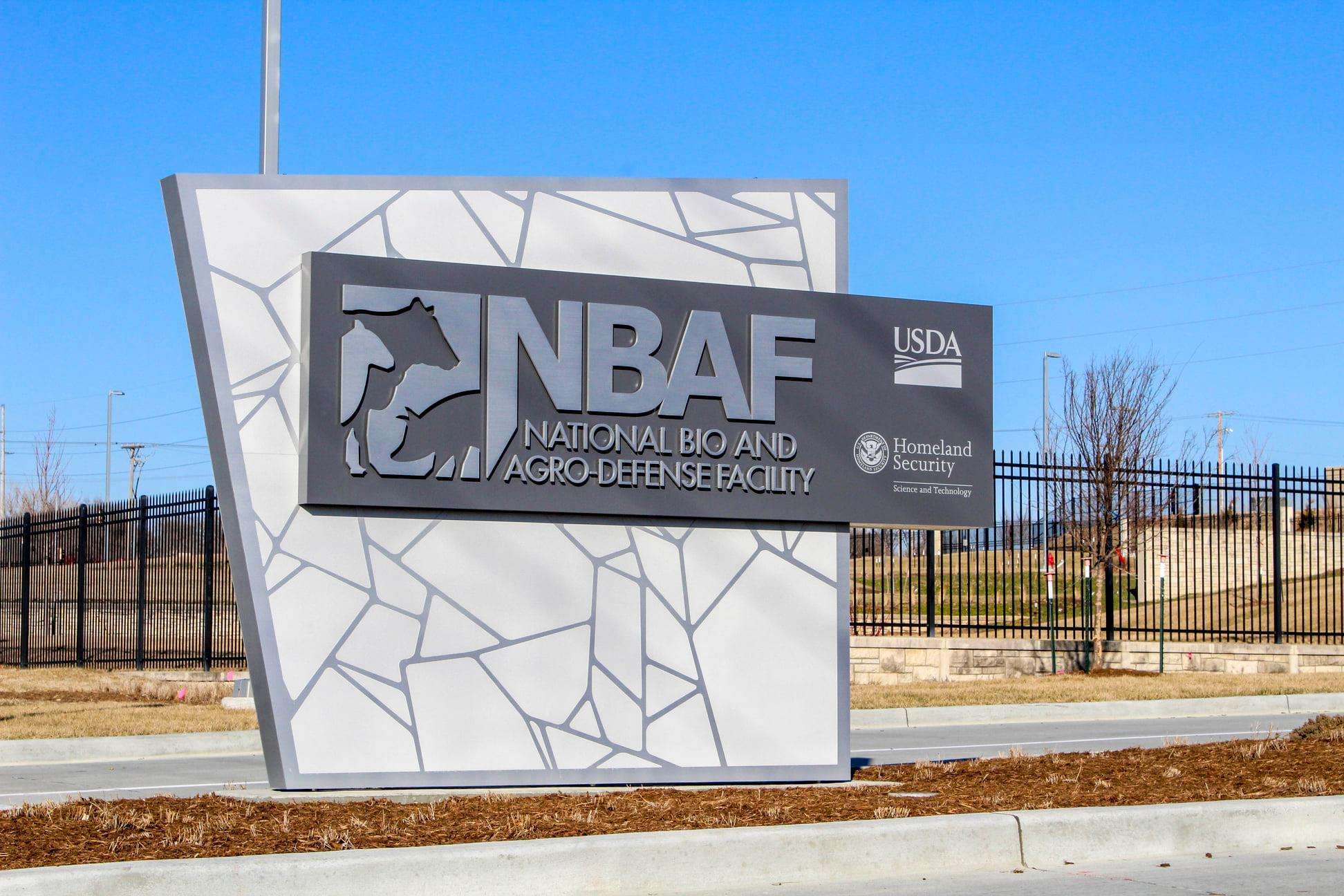
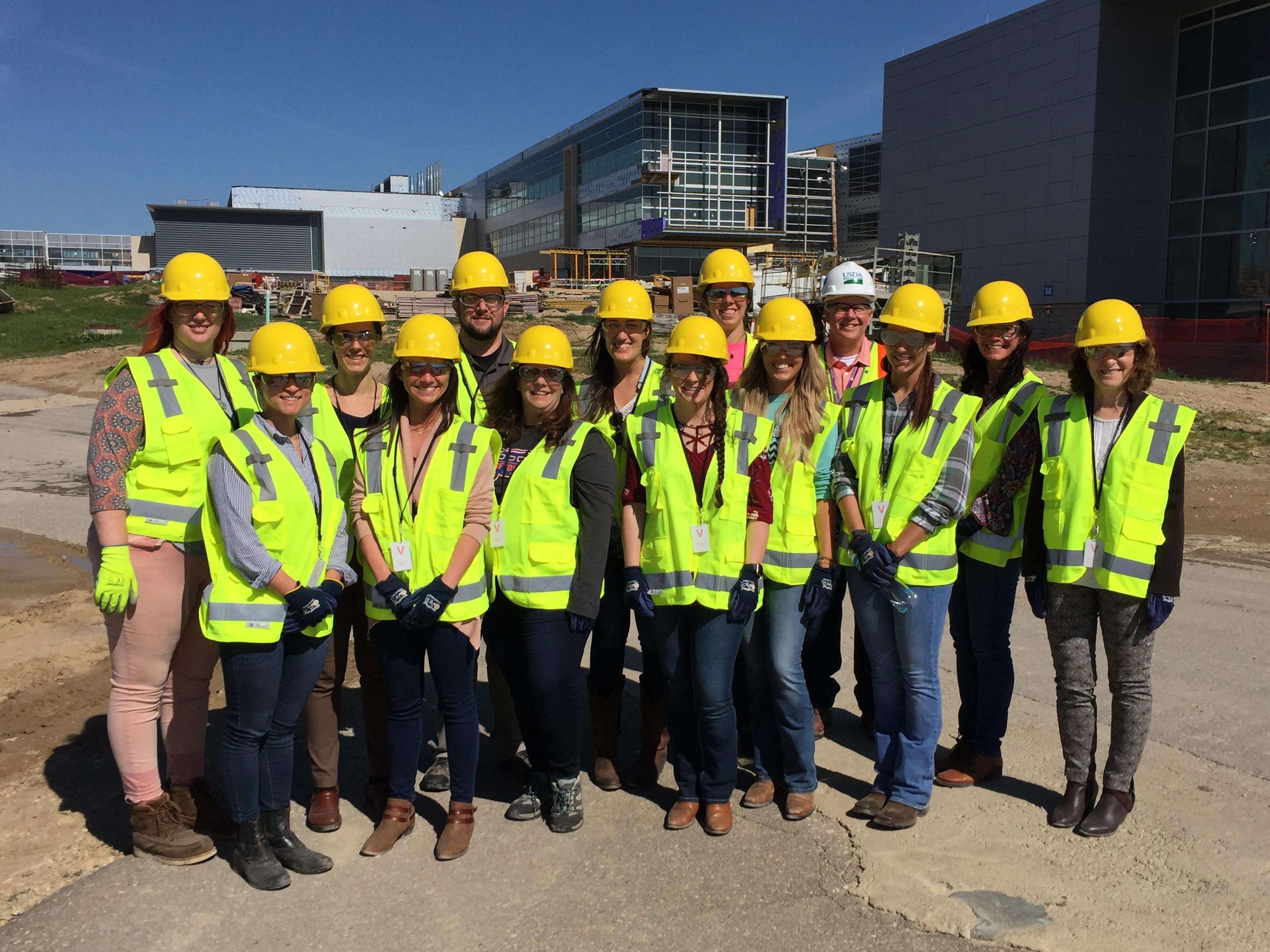
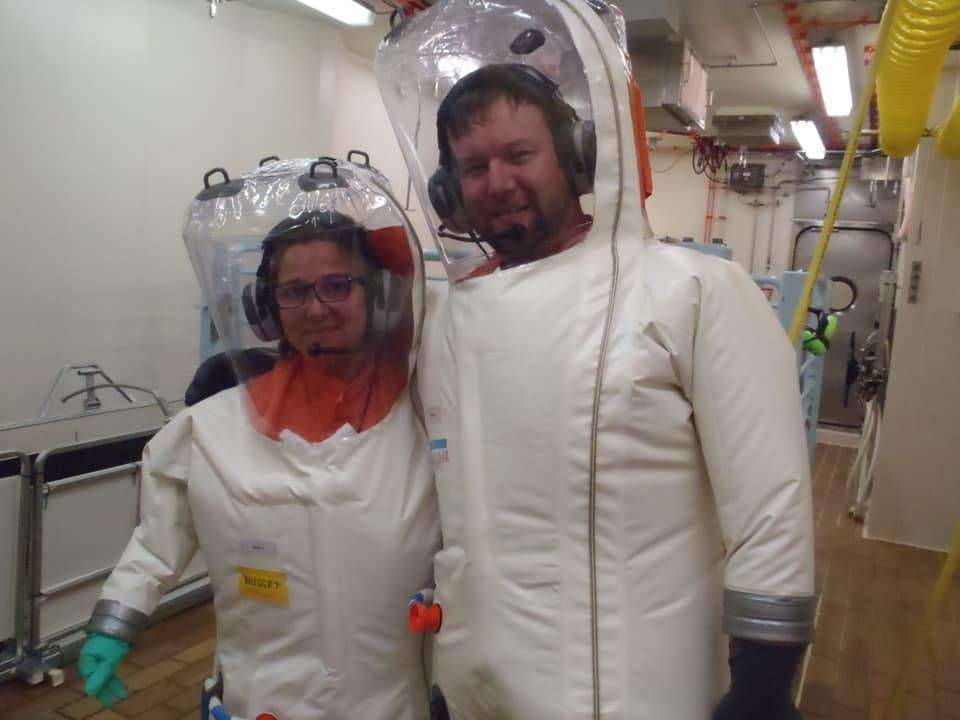
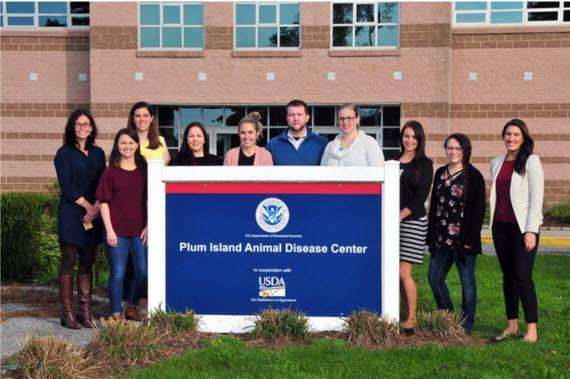

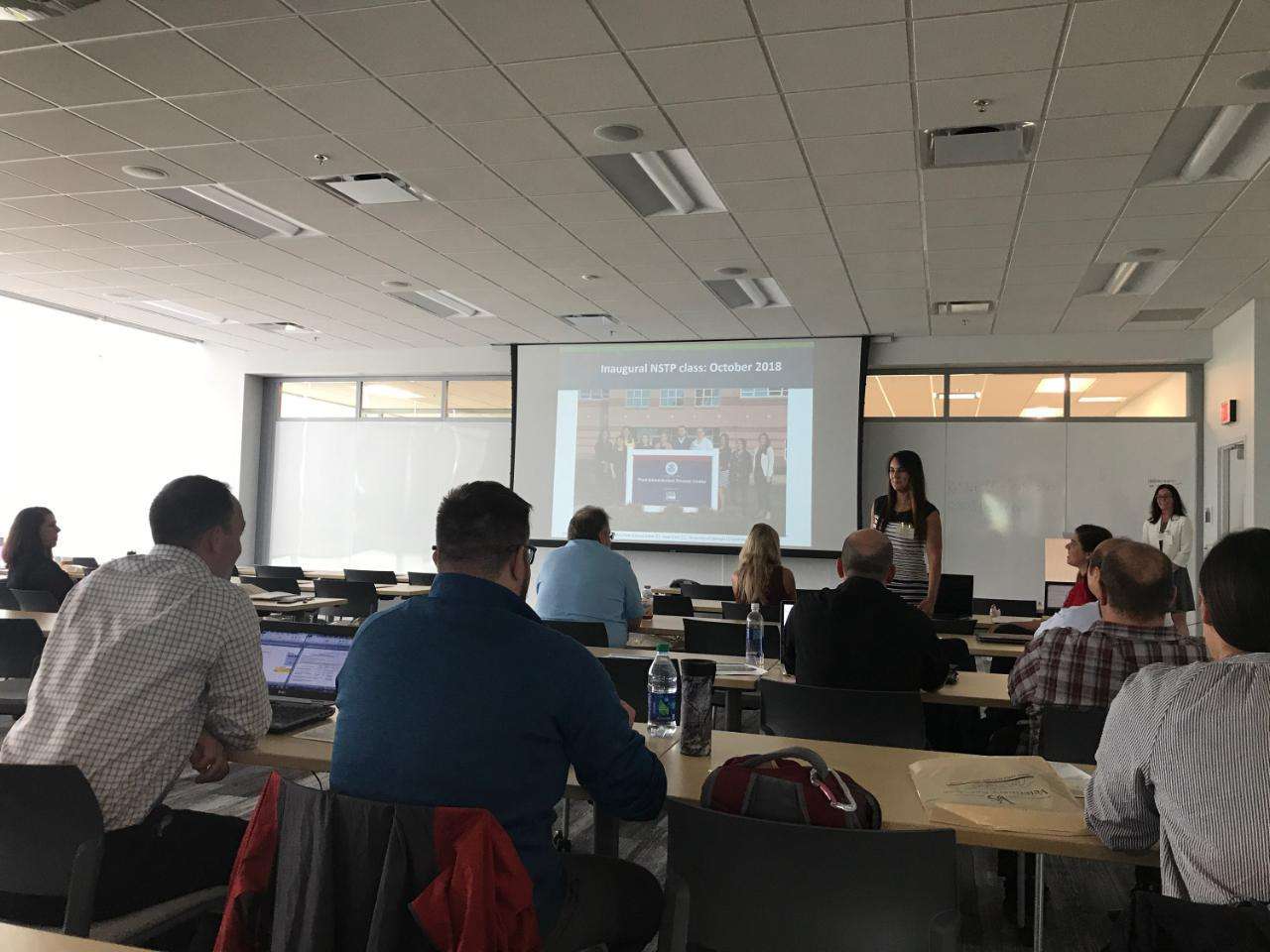
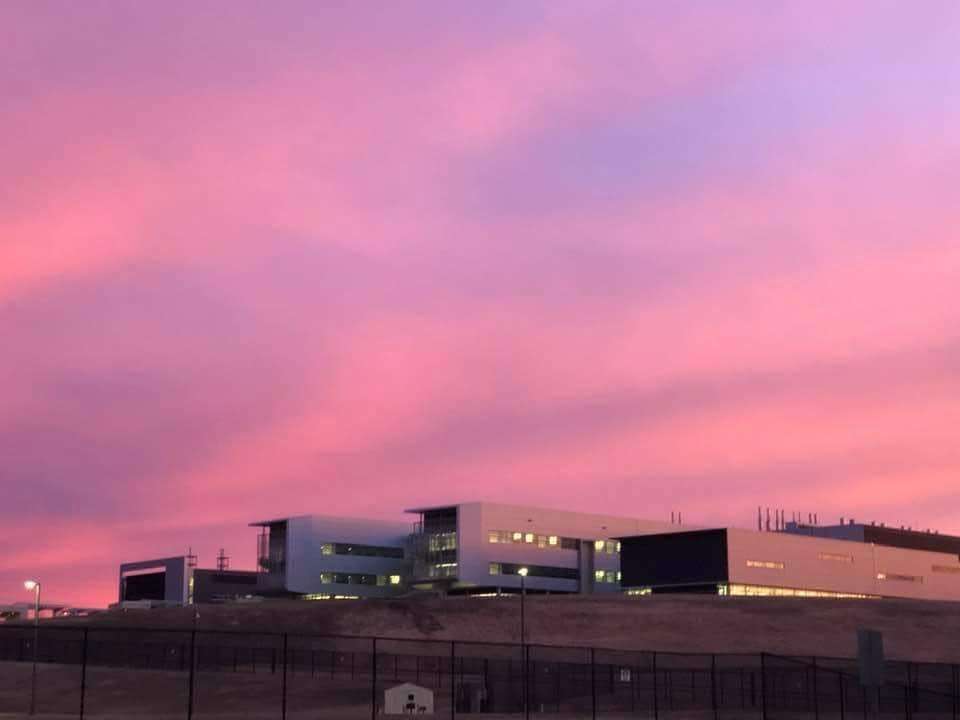
USDA National Bio and Agro-Defense Facility (NBAF) entrance sign
NSTP participants tour the NBAF facility.
First NSTP cohort at the kick-off event at Plum Island Animal Disease Center, Fall 2018
Aerial view of Plum Island
Symposium held at NBAF
NBAF at sunset








